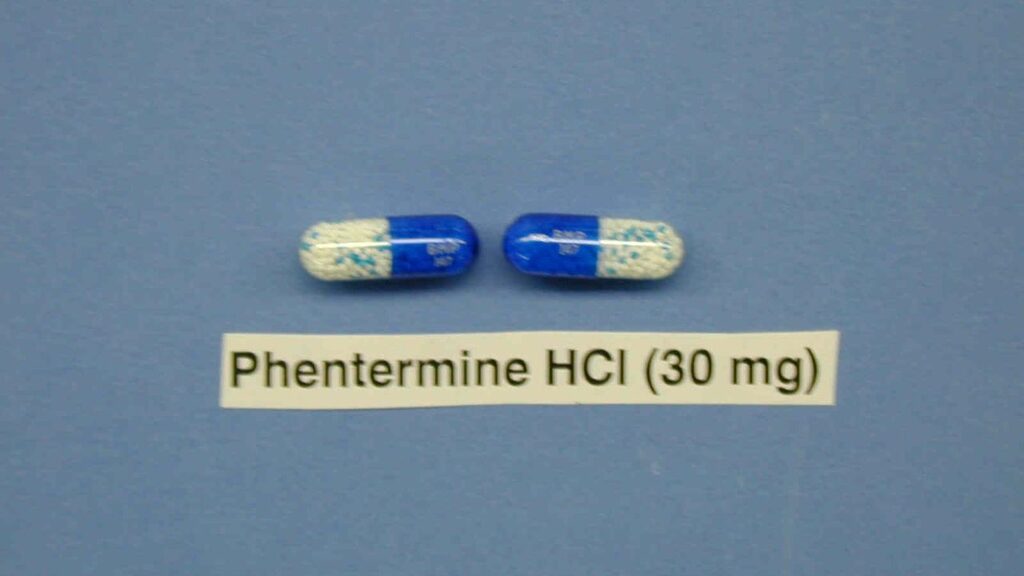Phentermine, a prescription medication used for short-term weight loss, has helped many people shed excess pounds. However, this powerful stimulant also carries a risk of addiction when misused or taken for extended periods. Learning about phentermine’s addictive properties is crucial for anyone considering or currently taking this drug.
What is Phentermine?
Phentermine is an appetite suppressant in the amphetamine family. It stimulates the central nervous system, increasing heart rate, blood pressure, and energy while decreasing appetite. Doctors prescribe phentermine for brief periods, usually a few weeks, as part of an overall weight loss plan that includes diet, exercise and behavioral changes.
Phentermine is a schedule IV controlled substance, meaning it has potential for abuse and addiction. It is intended only for treating obesity in people with a BMI over 30 or at least 27 with risk factors like diabetes or high blood pressure. It is not approved for cosmetic weight loss.
Addictive Properties of Phentermine
Phentermine produces effects similar to amphetamines, increasing dopamine, serotonin, and norepinephrine in the brain. This boosts energy and focus while suppressing appetite. Over time, the brain may adapt to these elevated neurotransmitter levels and develop tolerance.
With tolerance comes the need for increasingly larger doses to achieve the same effects, which can lead to dependence and addiction. People may start craving the drug’s weight loss and stimulant properties. Since phentermine is prescribed for short periods, some people obtain it illegally and take it continuously in escalating doses.
Phentermine vs. Other Stimulants
Phentermine’s addictive potential is similar to other stimulant drugs like amphetamines and cocaine. All these substances boost dopamine and norepinephrine, leading to increased energy, focus, and euphoria. However, phentermine’s effects are generally milder and slower to develop compared to illicit stimulants.
Interestingly, phentermine was one of the ingredients in the notorious “fen-phen” weight loss drug combination that was popular in the 1990s. Fenfluramine, the other half of fen-phen, was pulled from the market in 1997 after being linked to serious heart valve problems. Phentermine remains available but is more tightly regulated.
Signs of Phentermine Addiction
Common signs and symptoms of phentermine addiction include:
- Taking more than prescribed or for longer than recommended
- Strong cravings for phentermine’s energizing effects
- Needing higher doses to control appetite or get energy boosts
- Feeling unable to function normally without phentermine
- Doctor shopping to get multiple prescriptions
- Buying phentermine illegally online or on the street
- Continuing use despite negative consequences to health, relationships or daily functioning
- Experiencing withdrawal symptoms when stopping phentermine

Withdrawal and Detox
When someone addicted to phentermine stops taking it, they may experience withdrawal symptoms as their body adjusts to functioning without the drug. Phentermine withdrawal can involve fatigue, depression, anxiety, sleep disturbances, and intense cravings.
The severity and duration of phentermine withdrawal depend on factors like the length and amount of use. Trying to quit phentermine cold turkey can be challenging and even dangerous for long-term users. A medically supervised detox program can provide support and monitoring to ensure a safe, comfortable withdrawal process.
Risks of Dependence
Using phentermine long-term or in high doses can cause physical dependence, leading to withdrawal symptoms when trying to quit. Long-term phentermine use stresses the heart and cardiovascular system, potentially leading to chest pains, heart palpitations, high blood pressure, and cardiac issues.
Chronic high doses of stimulants like phentermine can also cause anxiety, paranoia, hallucinations, and erratic behavior, especially in susceptible individuals. As with other addictions, phentermine dependence can negatively impact work, school, finances, and relationships if left unchecked.
Phentermine and Co-Occurring Disorders
People with phentermine addiction often struggle with co-occurring mental health issues like depression, anxiety, or eating disorders. They may have started taking phentermine to cope with underlying emotional problems or body image issues. Conversely, phentermine misuse can also worsen pre-existing mental health conditions.
Treating phentermine addiction requires addressing any co-occurring disorders through integrated treatment plans that combine addiction recovery with mental health care. Behavioral therapies, counseling, and support groups can help individuals develop healthier coping mechanisms and work through the root causes of their addiction.
Getting Help for Phentermine Addiction
Phentermine can be a useful short-term tool for weight loss when taken as prescribed and combined with lifestyle changes. However, due to its addictive potential, phentermine should always be used cautiously under close medical supervision. Do not take phentermine in higher doses or for longer than your doctor advises.
If you or a loved one is struggling with phentermine addiction, professional treatment can help you safely detox and develop strategies to lose weight in a sustainable way. At Texas Recovery Centers, we provide comprehensive support for individuals seeking to overcome substance use disorders, including addiction to prescription stimulants like phentermine.
Our individualized treatment programs address both the physical and psychological aspects of addiction through evidence-based therapies, nutrition education, and aftercare planning. We also treat co-occurring mental health disorders to promote total wellness in recovery.
Don’t let phentermine addiction control your life. Take the first step toward lasting recovery by calling Texas Recovery Centers at 888-354-2194 today. Our compassionate team is here to help you break free from addiction and achieve your health goals.












